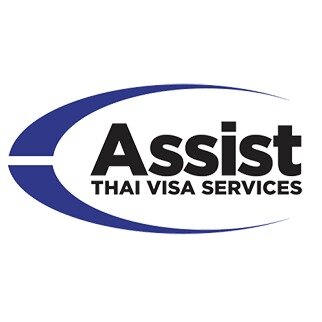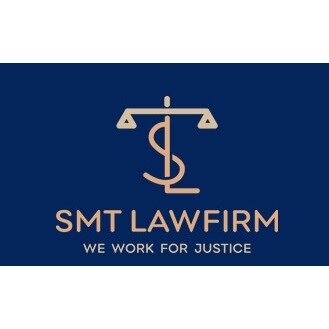Best Real Estate Contracts and Negotiations Lawyers in Chiang Mai
Share your needs with us, get contacted by law firms.
Free. Takes 2 min.
Free Guide to Hiring a Real Estate Lawyer
List of the best lawyers in Chiang Mai, Thailand
Legal guides written by SIAM LEGAL INTERNATIONAL:
- Defamation Laws in Thailand: Criminal Charges and Civil Suits
- The State of Thailand’s Long-Term Resident (LTR) Visa Program in 2025
- The Penalties Of Not Filing Your Income Tax Return As A Foreigner In Thailand
Thailand Real Estate Contracts and Negotiations Legal Questions answered by Lawyers
Browse our 2 legal questions about Real Estate Contracts and Negotiations in Thailand and read the lawyer answers, or ask your own questions for free.
- Selling my property in Krabi
- I'm the owner of a condominium in Krabi and have a ready foreign buyer. How can I get assistance to draft a sales contract between me and the buyer for a full sale without a property agent?
-
Lawyer answer by SB Law Asia
Our firm are experts in Thai property law and would be very pleased to assist you in this matter. Please feel free to contact us directly. The initial consultation is free.
Read full answer - Estate dealer Will not pay back.
- My Thai wife has paid money to an estate dealer for a land plot, the land should have been ready for overtaking, but due to different reasons it is not ready for overtaking, according to the contract, my wife should be able to get her money back, but the estate... Read more →
-
Lawyer answer by GPS Legal
GPS Legal has extensive experience in Real Estate Law, Contract Law, and dispute resolution in Thailand. If you choose to hire an attorney, please contact us directly
Read full answer
Thailand Real Estate Contracts and Negotiations Legal Articles
Browse our 9 legal articles about Real Estate Contracts and Negotiations in Thailand written by expert lawyers.
- 5 Common Legal Pitfalls in Thai Real Estate and How to Avoid Them
- Nestled within the paradisiacal landscapes and burgeoning economic dynamism of Thailand lies a high-stakes real estate market rife with both rapturous potential and formidable legal complexities. This idyllic Southeast Asian terrain has emerged as a globally-coveted destination for luxury residential developments, commercial property investments, and ambitious real estate endeavors spanning... Read more →
- How Foreigners Can Own Property in Thailand
- For foreigners considering property ownership in Thailand, understanding the process and relevant laws is crucial. These laws are not typically compared to the property ownership laws of other countries, as the Kingdom strictly regulates which foreigners can own property, the circumstances under which they can do so, and the types... Read more →
- Tax Implications of Buying Property in Thailand: A Comprehensive Guide
- You might be an expat in Thailand hunting for your next property investment, and interested in buying a condo in one of the world’s fastest-moving cities, Bangkok; or perhaps you’re an investor who is also in awe of the stunning and ever-popular vacation island of Phuket, or a retiree considering... Read more →
About Real Estate Contracts and Negotiations Law in Chiang Mai, Thailand
Chiang Mai, known for its rich cultural history and vibrant community, has a growing real estate market that caters to both locals and expatriates. Understanding the legal framework governing real estate contracts and negotiations in Chiang Mai is crucial for anyone looking to buy, sell, lease, or develop property in the region. Real estate contracts in Thailand typically involve transactions such as buying or selling land, residential properties, commercial spaces, and leasing agreements. These contracts must adhere to both local and national laws to ensure their validity and enforceability.
Why You May Need a Lawyer
Engaging with real estate contracts and negotiations can be complex and fraught with legal challenges. You may require legal assistance in the following situations:
- Purchasing property as a foreigner, which requires understanding restrictions and legal entities.
- Negotiating terms in a lease or sale to ensure favorable and fair conditions.
- Understanding and complying with zoning and land use regulations.
- Resolving disputes arising from contract terms or property transactions.
- Managing risks and liabilities associated with real estate investments.
- Ensuring compliance with local laws regarding environmental and cultural heritage sites.
Local Laws Overview
Several key aspects of local laws are important when dealing with real estate contracts and negotiations in Chiang Mai, Thailand:
- The Land Code: Governs ownership, transfer, and use of land in Thailand.
- Restrictions on Foreign Ownership: Foreigners are not allowed to own land directly but can own buildings or lease land long-term.
- Thailand Civil and Commercial Code: Provides the framework for contractual agreements and the obligations of parties involved.
- Condominium Act: Allows foreigners to own condominium units under certain conditions.
- Consumer Protection Laws: Ensure fairness and protect buyers in property transactions.
- Zoning and Building Regulations: Dictate what can be built and where, influenced by city planning and land use policy.
Frequently Asked Questions
What is the process for foreigners buying property in Chiang Mai?
Foreigners can purchase condominium units directly or own property through leasehold agreements or forming a Thai company. Legal advice is recommended to navigate these options.
Can a foreigner own land in Chiang Mai?
Foreigners cannot own land outright but can lease land or set up a Thai company to own the land under certain conditions.
What should I include in a real estate contract?
A comprehensive real estate contract should include the property details, payment terms, purchase price, obligations of each party, and contingency clauses.
Are real estate transactions in Chiang Mai subject to taxes?
Yes, transactions may incur taxes such as transfer fees, specific business taxes, and stamp duties. It's essential to understand these costs before proceeding.
How can disputes in real estate transactions be resolved?
Disputes can be resolved through negotiation, mediation, arbitration, or litigation depending on the clauses in the contract and the nature of the dispute.
What are the risks of not using a lawyer for real estate transactions?
Without legal aid, you risk signing unfair contracts, overlooking critical legal requirements, and facing unforeseen financial liabilities.
Is it necessary for lease contracts to be registered?
Lease contracts over three years must be registered with the Land Department to be enforceable; failure to do so renders them only enforceable by oral agreements for up to three years.
How long does a typical property transaction take in Chiang Mai?
The timeline can vary considerably, typically taking between a few weeks to several months, depending on due diligence processes and negotiations.
What due diligence should I perform before purchasing property?
Conduct thorough checks on land title, zoning regulations, existing encumbrances, and ensure all permits are correctly in place.
Can I cancel a real estate contract after signing?
Contract cancellation depends on the terms included in the agreement. Cancellation clauses and penalties should be clearly outlined to facilitate such actions if necessary.
Additional Resources
Several resources can assist those seeking legal guidance in real estate matters in Chiang Mai:
- The Land Department: Manages land registration and provides information on land titles.
- The Lawyers Council of Thailand: Offers a list of qualified legal practitioners.
- Expat community forums: Provide insights and shared experiences from other foreigners.
- Local real estate agencies: Can offer practical advice and guidance on property deals.
Next Steps
If you require legal assistance in real estate contracts and negotiations in Chiang Mai, consider the following steps:
- Consult with a qualified real estate lawyer to understand your options and get tailored advice.
- Research and gather all necessary documents related to your property transaction.
- Engage with local real estate agents for market insights and property listings.
- Stay informed about local real estate trends and legal updates to make informed decisions.
Taking these steps will help ensure a smooth process and protect your interests in real estate dealings in Chiang Mai, Thailand.
Lawzana helps you find the best lawyers and law firms in Chiang Mai through a curated and pre-screened list of qualified legal professionals. Our platform offers rankings and detailed profiles of attorneys and law firms, allowing you to compare based on practice areas, including Real Estate Contracts and Negotiations, experience, and client feedback.
Each profile includes a description of the firm's areas of practice, client reviews, team members and partners, year of establishment, spoken languages, office locations, contact information, social media presence, and any published articles or resources. Most firms on our platform speak English and are experienced in both local and international legal matters.
Get a quote from top-rated law firms in Chiang Mai, Thailand — quickly, securely, and without unnecessary hassle.
Disclaimer:
The information provided on this page is for general informational purposes only and does not constitute legal advice. While we strive to ensure the accuracy and relevance of the content, legal information may change over time, and interpretations of the law can vary. You should always consult with a qualified legal professional for advice specific to your situation.
We disclaim all liability for actions taken or not taken based on the content of this page. If you believe any information is incorrect or outdated, please contact us, and we will review and update it where appropriate.















